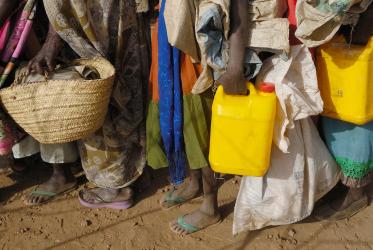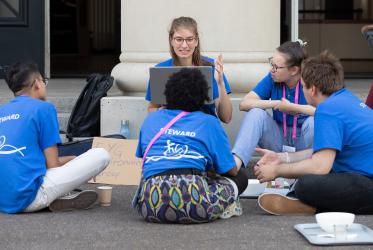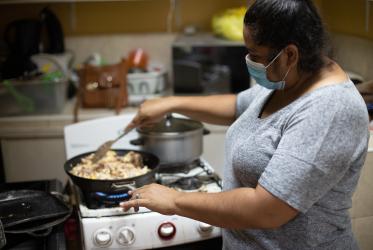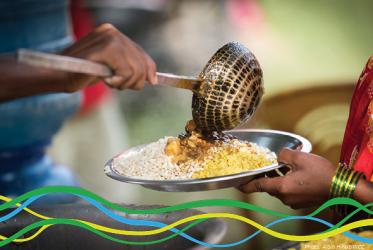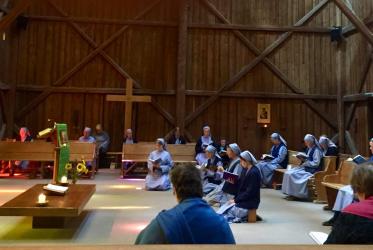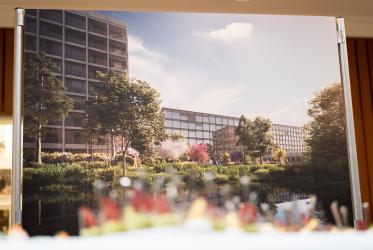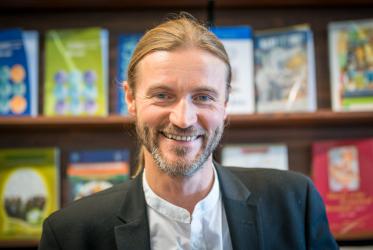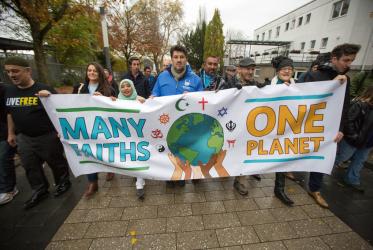Displaying 1 - 20 of 27
03 - 04 November 2022
Palais des Nations in Geneva, Switzerland
Youth organize for climate justice
01 September 2022
WCC well-represented in Religions for Peace leadership
07 October 2019
WCC President Wejryd: ‘Water, in many ways, represents God’
27 September 2019
Praying for unity with the Sisters of Grandchamp in 2021
20 September 2019
WCC mourns lost staff member in Ethiopian Airlines crash
11 March 2019
COP 23 “debriefing” brings faith and ethical perspectives
23 January 2018
Tveit on the “Ten Commandments” of food
26 January 2016
New video presents Ecumenical Advocacy Alliance’s call to action
13 January 2016
COP21: how climate change affects access to our daily bread
09 December 2015
Patent agreement welcomed as step to improve HIV treatment
30 November 2015
Local and global work saves lives
22 October 2015
